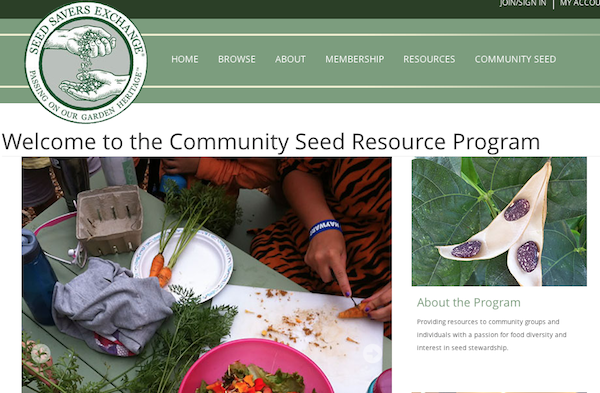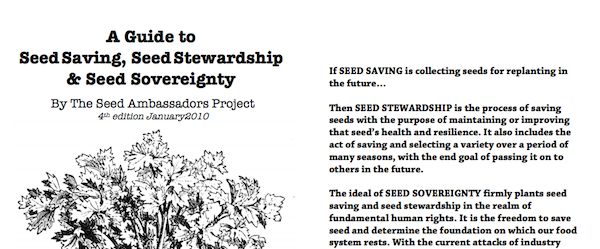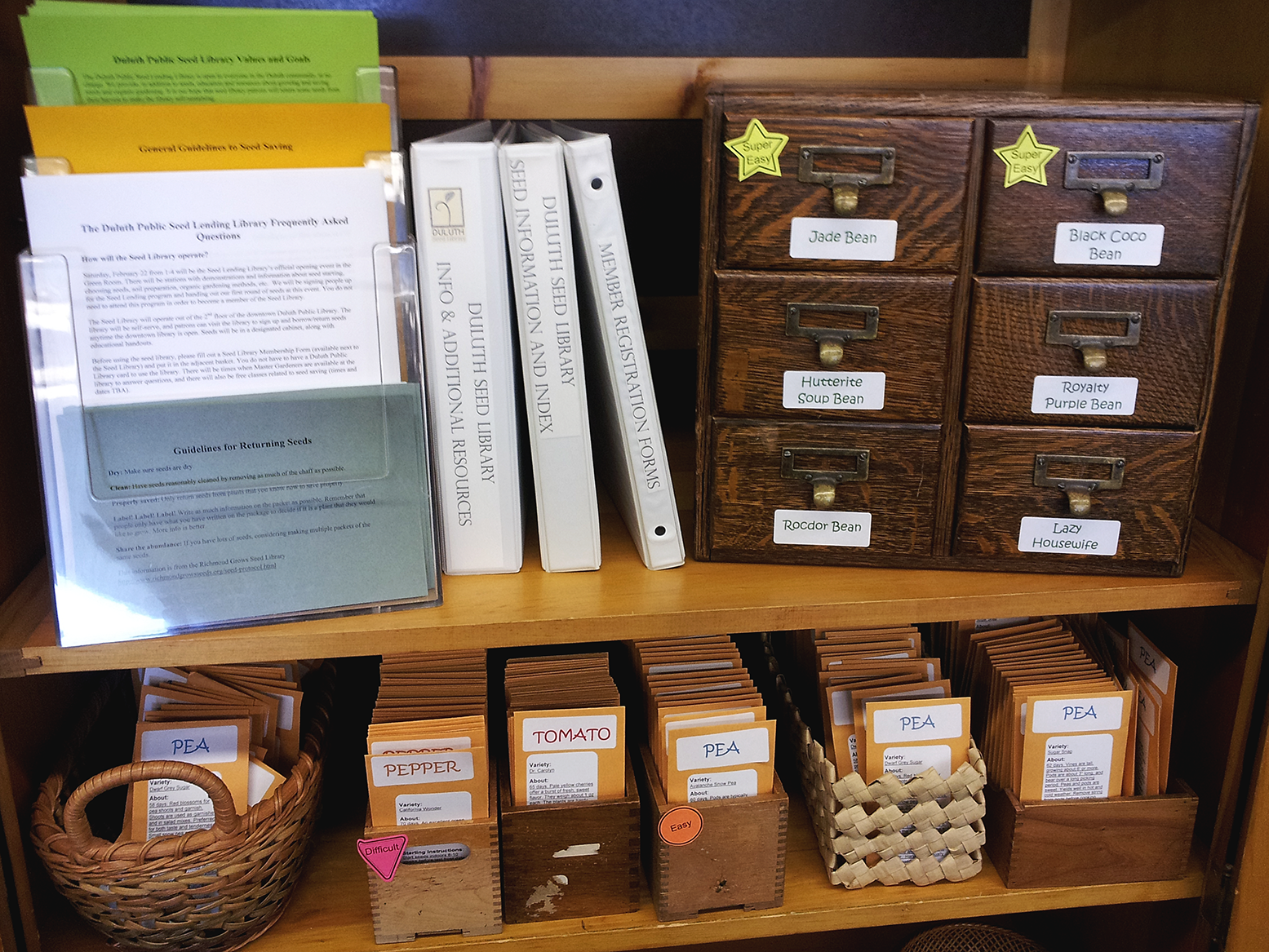Seeds, wonderful seeds! They’re getting a lot of attention these days as seed libraries face extinction in the U.S. because regulations intended for big commercial operators are only recently being applied to small seed libraries. But seed libraries, which help neighbors share seeds, are a vital part of creating a resilient food system. They provide free access to seeds, protect seed diversity, and empower people to grow food.
In response to the crackdown on seed libraries, seed activists are mobilizing to share best practices, resources, and legal strategies. To help strengthen the movement, Shareable is partnering with the Sustainable Economies Law Center on a multi-faceted seed campaign, including a petition urging state officials to protect seed libraries from aggressive regulation.
Want to join the seed movement? We’ve rounded up nine of the best seed saving and sharing resources to get you started.
1. Use your local seed library. Click here to find one near you
Credit: Duluth Public Seed Lending Library
First things first: find a seed library and connect with the seed activists near you to find out what’s being done with the seed movement on a local level. SeedLibraries' “sister libraries” resource is a listing of nearly 400 seed libraries around the world.
2. If there isn't a seed library near you, start one
Credit: Manitou Springs Seed Library
Seed libraries may be one of those things you can’t have too many of. Perhaps one day we’ll have an over-abundance of seed libraries. Until then, the more the merrier. Starting a seed library is definitely something you can do. Read Shareable's guide here. And check out SeedLibraries for more information.
3. Protect your right to share seeds, sign the LegalizeSeeds.org petition
Care about seed diversity and the future of seed libraries? Want to help protect seeds from being regulated into extinction? Sign the Legalize Seeds petition. Sponsored by the Sustainable Economies Law Center, Shareable, and RichmondGrowsSeeds.org, the petition calls on the directors of all 50 U.S. State Departments of Agriculture to issue a public statement declaring that their state’s Department of Agriculture’s seed enforcement policy does not include seed libraries, and begin implementing regulations formalizing this policy.
4. Get educated, check out the Community Seed Resource Program

Seed Savers Exchange (SSE) is on a mission to “conserve and promote America’s culturally diverse but endangered garden and food crop heritage for future generations by collecting, growing, and sharing heirloom seeds and plants.” SSE also offers dozens of educational resources. The Community Seed Resource Program, a collaboration between SSE and Seed Matters, provides tools and guidance for creating seed-focused events, exchanges, libraries and gardens. Resources offered include community seed toolkits, including seeds, educational tools, and seed saving supplies; access to SSE's national seed exchange; and mentorship.
5. Get the ultimate seed saving handbook, Seed to Seed by Suzanne Ashworth

Widely considered the best book about seed saving, Seed to Seed is a detailed guide of specific techniques for saving the seeds of 160 vegetables. Covering everything from botanical classification, flower structure and means of pollination to the proper methods for harvesting, drying, cleaning, and storing the seeds, the book also provides regional knowledge from seed experts around the US.
6. Teach the kids using Handful of Seeds: Seed Saving and Seed Study for Educators [pdf]

Created by the Occidental Arts and Ecology Center, a non-profit education center in Sonoma County that works to promote ecologically and culturally resilient communities, A Handful of Seeds is an introductory seed-saving curriculum for kindergarten through sixth grade. Seed saving can be used to teach science, language arts, math, social science, drama, music and more and the guide is a useful starting point for a variety of garden and environmental programs.
7. Join the Organic Seed Alliance

The Organic Seed Alliance is on a mission to advance “the ethical development and stewardship of the genetic resources of agricultural seed." Through research, education, and advocacy, the organization "addresses the consolidation of the seed industry by empowering regional seed networks to create change locally and nationally." Among the alliance's offerings are events, publications, webinars, and a seed saving guide for gardeners and farmers.
8. Read the Guide to Saving Seed, Seed Stewardship, and Seed Sovereignty [pdf]

Created by the Seed Ambassadors Project, an Oregon-based group of seed stewards with a global perspective, this guide is a collection of seed information and know-how created as a way to share the collective seed knowledge of the Seed Ambassadors to secure a resilient future. As the guide states, “We are losing diversity, biological and social, at an unprecedented rate. This erosion of diversity directly limits our ecological and social resilience and adaptability within this changing world.”
9. Find the others, join the Seed Library Social Network

The Seed Library Social Network brings seed activists to together online to brainstorm and strategize. Created in 2011 by seed activists working at the University of California at Santa Cruz’s Demeter Seed Library, the network now includes members from around the world.
Top photo: Kate Ter Haar (CC). Follow @CatJohnson on Twitter
Protect seed sharing in the United States by signing Shareable's petition here. State governments around the country are regulating seed libraries out of existence. Please help us stop them!












